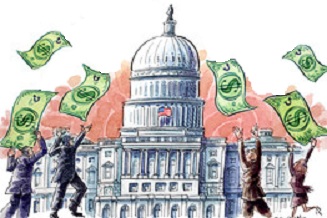No Need for Speed
Or is it too late?
It may be a given that the Wall Street race for riches is not always won by the swift or sterling of character. Haim Bodek, a former insider at Goldman Sachs and UBS, certainly has found this to be the case. Currently the owner of a proprietary trading firm, Bodek is a corporate crusader who alerted the SEC in 2011 to what he believed were unfair trading practices. The issue is high-frequency trading, or “HTF.” In industry parlance, HTF means the use of computerized algorithms for statistical analysis and execution of investment orders. Bodek, who helped run an HTF firm, saw first-hand how millions of trades that were conceived and initiated by computers. This trades led to extreme market volatility beyond the scope of human reason and, perhaps, logical insight. My Bodek believes that the speed and complexity of such trading systems place the ordinary investor at an extreme disadvantage. He asserts that the traditional “buy and hold” approach may not be valid or a conservative stance to take in an environment that rewards speed rather than safety. Systems that trade on profits of one penny or less are often trading thousands of times in any given day, creating wildly profitable short-term gains. The average investor, armed only with the familiar with “buy” and “sell” orders, simply cannot compete with these sophisticated trading techniques. Techniques that, at times, either enable HTF orders to jump ahead, trade for less, or to receive information prior to public dissemination.
Since the last severe market plunge in October 1987, computers have only gotten faster – not wiser. I fear that it may take another dramatic series of events, say a glitch in an operating system or implanted terrorist virus, to convince government regulators that sometimes speed is not of the essence.
Unlike countries like Canada and Germany, regulating high frequency trading is not high on America’s priority list and I believe that we are in a reactive, rather than proactive status. I remain concerned about the influx of speed, enormous trading volume and products that regulators are not familiar with. I also believe that Washington is in a gridlock that filters down and that no one is really protecting the customer.
Stay tuned as we further explore these and other matters that affect your pocketbook.
Stay informed – sign up for our e-Newsletter.



